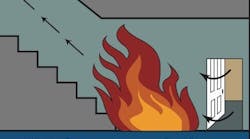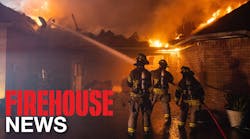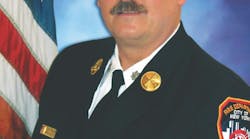The legislation originally was titled the "21st Century Fire & Public Safety Act" and was first proposed by Rep. William Pascrell Jr. (D-NJ) in the last session of Congress. Along with being revised, it has been renamed the "Firefighter Investment & Response Enhancement Act" and will be identified by the acronym "FIRE Act" as it negotiates a perilous passage through the new Congress.
It still calls for the federal government to provide $5 billion over a period of five years for grants to be awarded to local fire departments on a competitive basis. The money can be used to buy apparatus and other equipment, create arson, hazardous materials and anti-terrorism training, expand emergency medical services, deploy new communications technology and hire more firefighters. But the emphasis now is on health and safety and it will be presented to members of Congress as a bill to protect firefighters and the citizens they protect.
"We finally have a bill that everyone can support," says a fire service leader who had reservations about the original version. That support came about because Congressman Pascrell and his staff reached out to seek input from the major fire organizations. There will be a grassroots campaign to rally firefighters behind the bill and encourage them to urge their own members of Congress to vote for its passage. There also is a concerted effort underway to gain bipartisan support from both sides of the aisle, which is essential since it was introduced by a Democrat and the House and Senate are controlled by Republicans.
The challenge will be to convince the Republican majority - which is committed to budget and tax cuts - that the federal government should be spending $5 billion on something that is a local responsibility. There still is concern that providing federal funds to buy fire apparatus will look like another pork-barrel feast and make it more difficult to win support in Congress.
The obvious talking point to overcome that hurdle is that fire departments don't have the resources they need and the federal government has been providing similar support to police departments for many years. "This legislation is the first of its kind and the most ambitious fire services bill ever written," Congressman Pascrell explains. "It takes the general framework for the successful C.O.P.S., program that has put police on our streets all across America, and applies it to the fire services...It will give firefighters the tools and training to save more lives."
Several readers took exception to my February column, in which I reported that some fire service leaders had doubts about the original version of the Pascrell bill. I pointed out that there has to be a careful plan of attack for fire legislation to be passed and I questioned the wisdom of plunging ahead without unified support and a coordinated strategy. I also criticized those who had used heavy-handed tactics in dealing with Congress and I defended the major fire organizations that have fought the fire service's battles on Capitol Hill for so many years.
My target was NOT the fire chiefs from the northeastern states who have been strong supporters of the Pascrell bill. In fact, I deliberately cited their integrity and good intentions, and praised them for causing the fire service to take a fresh look at its priorities. My criticism was aimed at others and I regret if it was misunderstood. But I'll stand by what I wrote in that column and to those who advocate a brass-knuckles approach, if the boot fits, wear it.
On the other front, Chief Richard Marinucci, of the Farmington Hills, MI, Fire Department, has been appointed as a special assistant to James Lee Witt, director of the Federal Emergency Management Agency (FEMA). Marinucci's mission is to begin implementing recommendations made by the Blue Ribbon Panel that investigated a long list of complaints about the lack of proper funding for federal fire programs and weak leadership at the U.S. Fire Administration.
A former president of the International Association of Fire Chiefs (IAFC), Marinucci's appointment is for six months, which means he has to move fast. His immediate goal is to focus on solutions that will survive when there is a change of administration - as there's going to be in less than two years - and a new president appoints new people to head FEMA and the USFA. The fact that Witt named a fire chief as his special assistant is a step in the right direction, since one of the key recommendations calls for the fire-rescue service to play a more prominent and influential role at FEMA headquarters.
Over the years, there have been many frustrations and disappointments with the federal fire programs. But there also have been some notable successes that have contributed to reducing the nation's fire death toll. What's needed now is direct help to fire departments that have been hurt by years of budget cutting on the part of local governments. FIRE Act and the effort to rehabilitate USFA and the Fire Academy offer reasons for "cautious optimism" and deserve support from all elements of the fire-rescue service.
Hal Bruno, a Firehouse® contributing editor, is a retired political director for ABC News in Washington and served for 40 years as a volunteer firefighter.




